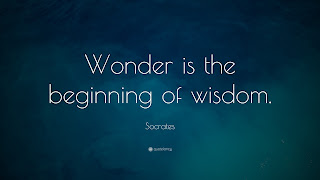How Socrates learned and taught the truth
Shoutout to all the teachers
If you've taken a class with a good teacher, and you actually feel that you got something away from it, chances are that your professor used maieutics, or the Socratic Method. All in all, it's pretty simple, you have two or more people asking each other questions, and through these questions you stimulate critical thinking and actually view everyone's prejudices and can draw them out, or to further their understanding about any topic.
In a way, it's also a method of eliminating hypothesis, because you're always finding better theories about anything, and getting rid of those which are contradictory, either with the truth, or with your other beliefs. You make a series of questions that serve as tests of logic in order to help someone expand their knowledge or beliefs about any topic. Even though Socrates was who developed this method, it is Plato who put it down in prose in the Socratic Dialogues, where he recorded conversations between his teacher and citizens. In these, the people were questioned on moral and epistemological (theory of knowledge) issues, and their views would be either challenged or expanded upon by the questions that they had to answer. Plato then developed another version of this method he called dialectics.
The method is pretty similar to the scientific method. It follows these steps:
- Make a common sense statement
- Find an exception
- Reject the statement if you found an exception
- Make a new statement that accounts for the exception
- Repeat until you cannot find an exception
There are two forms of this method. The Classic Socratic Method focuses on questions of morality, virtue, and the answers not known by the facilitator. The Modern Socratic Method asks questions that already have answers, and can be considered to be more of Plato's interpretation of his teacher's ways. While the Classic method will have you wondering whether justice is truly based in equity, the Modern method can be used to ask your student what 2+2 is and to gauge whether he can figure it out for himself.
As you can see, the Modern method will have to be used a little differently than the Classic, for it is not the same to question beliefs than to actually acquire new knowledge through the questions that you are asked. For this, the questions must be 1) Interesting, 2) Incremental, 3) Logical (moving from the student's prior knowledge towards a goal), and 4) Designed to illuminate particular points. This makes the scope of answers that you can receive for your questions smaller than with the other method. Instead of simply asking what justice is, you give a small example of a moral dilemma and ask what is fair, and you build up from there.
How can we apply this?
The Socratic Method is not only useful for a teacher, but for anybody who wishes to have a more objective view of the world. It implies that you use your critical thinking skills to debunk your own preconceptions, and get closer to the truth, which is what matters at the end of the day.
If you're a teacher, though, instead of simply asking your students to memorize information, lead them to it through relevant questions that they can answer for themselves if they think a bit. Should it be used to teach anything? Not quite, I wouldn't say it's effective for teaching somebody differential calculus if he's just finished linear algebra, for building knowledge on a new topic like that would take more time than it's worth. Use it to build knowledge rather than teach from scratch, and you'll have a powerful tool at your disposal. After all, the best teacher in history used it, why shouldn't you?








No comments:
Post a Comment